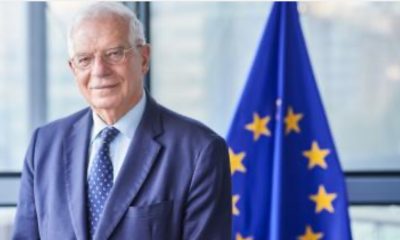koronavirus
Majistra Moskou deklare demand ki ba pou vaksen COVID-19

Moscow Mayor Sergei Sobyanin (pictured) has lamented how few residents had chosen to get vaccinated against COVID-19 despite free and easy access to shots since January, a rare admission by a Russian politician of the extent of the problem.
Hospitals in the Russian capital continue to be packed with sick and dying people, Sobyanin said, despite vaccines against the disease being widely available for almost six months.
"It is remarkable...People are getting sick, they continue to get sick, they continue to die. And yet they still don't want to get vaccinated," Sobyanin said in comments made at a meeting with activists last week but published in a blog post on Friday.
Russia was the first country in the world to approve a COVID-19 vaccine for domestic use, prior to the start of large-scale trials. Roll-out of the Sputnik V shot began in December and in the capital was rapidly opened up to all.
Since the start of this year, all that a Moscow resident needed to do to get a vaccine was show up at a clinic with their ID.
"We were the first major city in the world to announce the start of mass vaccination. And what?" Sobyanin said. "The percentage of vaccinated people in Moscow is less than in any European city. In some cases, several times over."
Walk-in vaccination centres were opened up in Moscow's shopping malls and parks. Pensioners were offered indirect payouts as an additional incentive, he said.
Yet just 1.3 million people in Moscow have received a shot so far, Sobyanin said, out of 12 million residents. That number could have been double by now, he added.
He blamed fear of vaccination for the problem.
Of seven passers-by interviewed by Reuters in Moscow, only one said they had been vaccinated. Many said they did not feel the need as they had already been sick with COVID-19, and had protective antibodies.
An independent poll conducted in early March showed that 62% of Russians were not willing to receive the Sputnik V vaccine, with 18 to 24-year-olds most reluctant. Most gave side effects - which can include fever and fatigue - as the main reason. Li piplis
Pataje atik sa a:
-

 Konferans4 jou de sa
Konferans4 jou de saKonferans on-off NatCon a te sispann pa lapolis Brussels
-

 Konferans5 jou de sa
Konferans5 jou de saKonferans NatCon pou ale pi devan nan nouvo lokal Brussels
-

 Sèvis Aksyon Ekstèn Ewopeyen an (EAAS)5 jou de sa
Sèvis Aksyon Ekstèn Ewopeyen an (EAAS)5 jou de saBorrell ekri deskripsyon travay li
-

 Dwa Moun5 jou de sa
Dwa Moun5 jou de sa"Sèk - Twisted Kwayans" - Revizyon Liv


























